You found our list of top office management books.
Office management books are guides on how to effectively run an office. Many of these references are industry specific, such as medical, law, or hospitality. However, other books detail general administrative responsibilities. The purpose of these books is to help professionals run efficient and organized office operations.
These books are similar to executive assistant books, company culture books, and management books.
This list includes:
- books on office management
- administrative management books
- office manager books
Here we go!
List of office management books
From niche textbooks to cultural manifestos to organizing manuals, here is a list of books on office administration to help professionals stay organized and compliant.
1. Remote: Office Not Required by Jason Fried and David Heinemeier Hansson
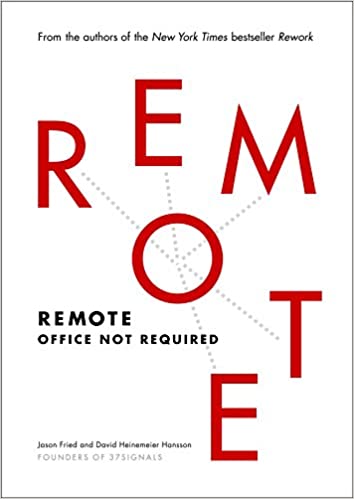
Remote: Office Not Required is the ultimate guide to running virtual offices. Beyond creating one of the most widely-used project management tools, Basecamp was one of the first companies to function entirely remotely. Authors and company founders Jason Fried and David Heinemeier Hansson present a firsthand account of the challenges and benefits of running remote organizations. The book tackles topics like technology, flexible working hours, employee monitoring, long-distance collaboration, and distraction prevention. Remote: Office Not Required functions as a handbook for virtual office managers and leaders trying to organize a dispersed workforce.
Buy Remote: Office Not Required.
2. The New Executive Assistant: Exceptional executive office management by Jonathan McIlroy
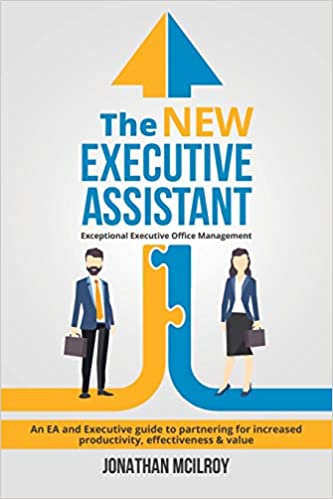
The New Executive Assistant is one of the best office assistant books. This guide explains how the executive assistant role has evolved within the past decade and gives advice on how to effectively oversee the executive office. The book spans the full scope of assistant office responsibilities, from administrative duties like note-taking, filing, and data entry, to interpersonal interactions and people management, to policy creation, project coordination, information control and beyond. The New Executive Assistant demonstrates the assistant’s full potential and gives instructions on how to optimize organizational efficiency by way of individual performance.
Buy The New Executive Assistant.
Want some free team building tools?
$49 value (100% free)
- 100+ fully tested icebreaker questions
- 24+ themed Bingo generators
- 5+ PDFs (including the 8% Rule)
- 2024 team building calendar
- and more...

Enter your email for instant access
3. Administrative Office Management, Complete Course by Pattie Gibson
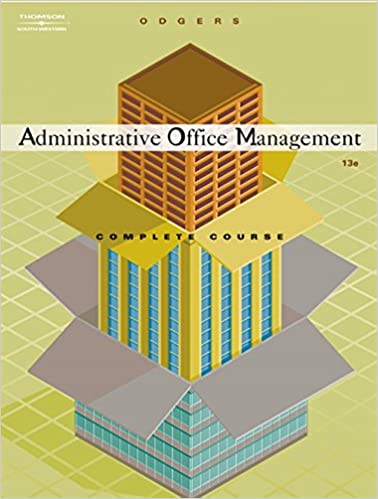
Administrative Office Management focuses on higher-level management functions in office settings. The book covers concepts like human resource management, leadership, office ethics and etiquette, workplace safety, ergonomics and design, and computer and information systems. The range of topics covered makes this work one of the better administrative office management books. Administrative Office Management contains several numbered lists, charts, and diagrams that break down and simplify the elements of overseeing an office. This text is a practical guide for designing and maintaining dynamic white collar workplaces.
Buy Administrative Office Management.
4. Medical Office Procedures by Nenna Bayes
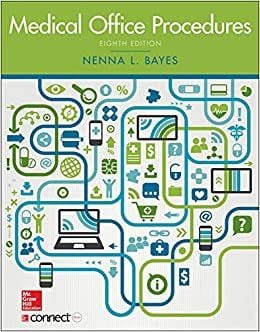
Medical Office Procedures is a combination textbook and workbook that gives tips on running healthcare offices. The book delves into topics like managing health records, ensuring compliance with regulations like HIPAA, scheduling, insurance, medical billing, and reimbursements. The author also gives advice on employee and patient education, provides a glossary of common medical terms, and covers more typical office subjects like communication styles and management best practices. Medical Office Procedures serves as a valuable reference for healthcare administrative support of all levels.
Buy Medical Office Procedures.
5. Fundamentals of Law Office Management by Pamela Everett-Nollkamper
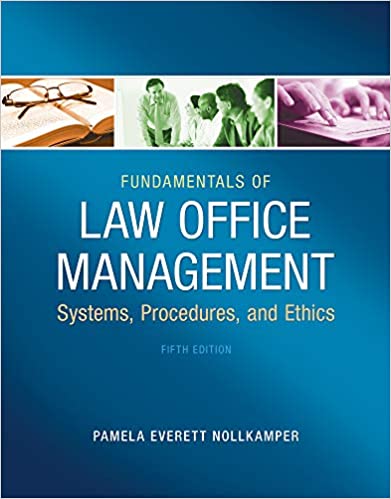
Fundamentals of Law Office Management explains how to run an organized legal practice. The book covers industry-specific areas like docketing, maintaining a law library, hours-billable timekeeping, and client billing, as well as client attorney relationships, ethical concerns, and confidentiality. One section differentiates between the various roles within law offices, such as paralegals and attorneys. The book also touches on general office best practices such as communication, technology, and teamwork.
Buy Fundamentals of Law Office Management.
6. Records Management (Advanced Office Systems & Procedures) by Judith Read and Mary Lea Ginn
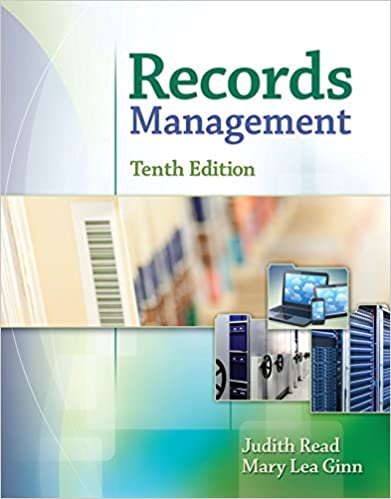
Records Management presents a masterclass in documentation and filing. The textbook covers topics such as alphabetic indexing, electronic filing, record retrieval. Each chapter is full of explanations, tips, and best practices to help record keepers build accessible systems and stay compliant with regulations. Records Management is a great resource for rookies and administrative veterans alike. Plus, the authors regularly release new editions to cover emerging technologies and software.
Buy Records Management.
7. Managing Front Office Operations by Michael L. Kasavana and American Hotel & Lodging Association

Managing Front Office Operations is one of the best front office management books. Published in conjunction with the American Hotel & Lodging Association, the book outlines how to set up and maintain functional front offices in hotels and resorts. The book covers topics such as cross-departmental collaboration, automated information systems and backup best practices, identity theft protection, and environmentally-conscious hospitality operations. At 649 pages, Managing Front Office Operations is one of the most comprehensive hospitality office management textbooks.
Buy Managing Front Office Operations.
8. The Upbeat, Organized Home Office: Five Simple Steps to SORT and Succeed for an Organized Mind, Better Time Management Skills, & an Office that Makes You Smile by Darla L DeMorrow
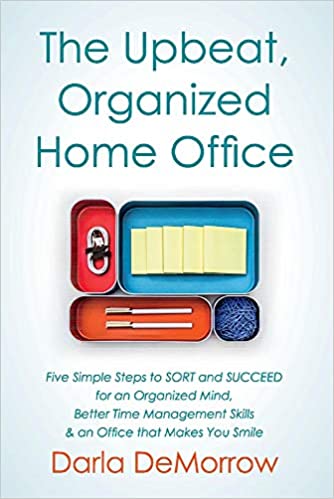
The rise of remote work has made traditional offices more of a rarity, and virtual and hybrid offices more of a norm. While architects typically design centralized offices with worker productivity in mind, telecommuters must engineer their own efficient work-spaces. The Upbeat, Organized Home Office teaches readers how to set up and maintain productive work-from-home-spaces. The book tackles subjects such as digital organization, clutter management, record-keeping, and time tracking tools. The Upbeat, Organized Home Office serves as a manual for good home work hygiene.
Buy The Upbeat, Organized Home Office.
9. The Best Place to Work: The Art and Science of Creating an Extraordinary Workplace by Ron Friedman
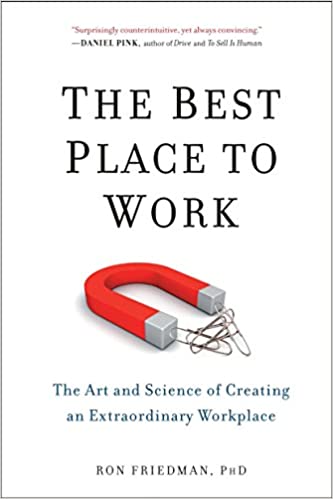
The Best Place to Work is about cultivating productive and engaging professional environments. The book explains how to build the ideal office atmosphere, both physically and psychologically. Psychologist Ron Friedman writes out science-backed advice on subjects such as office layout, employee motivation, and attracting top talent. The Best Place to Work pinpoints the factors that make the best offices productive and attractive environments.
Conclusion
Office management is straightforward yet not simple. The practice involves many different components, and varies by industry. Reading reference materials can help office leaders set up a new practice or remedy a disorganized location. Not to mention, these instructions enable businesses to remain compliant with informational regulations and knowledgeable about the most up-to-date technologies. These books serve as valuable references that serve administrators on all levels and help to build productive, efficient, and profitable offices.
For more reading suggestions, check out our lists of HR books and employee engagement books.
We also have a list of employee management styles.
